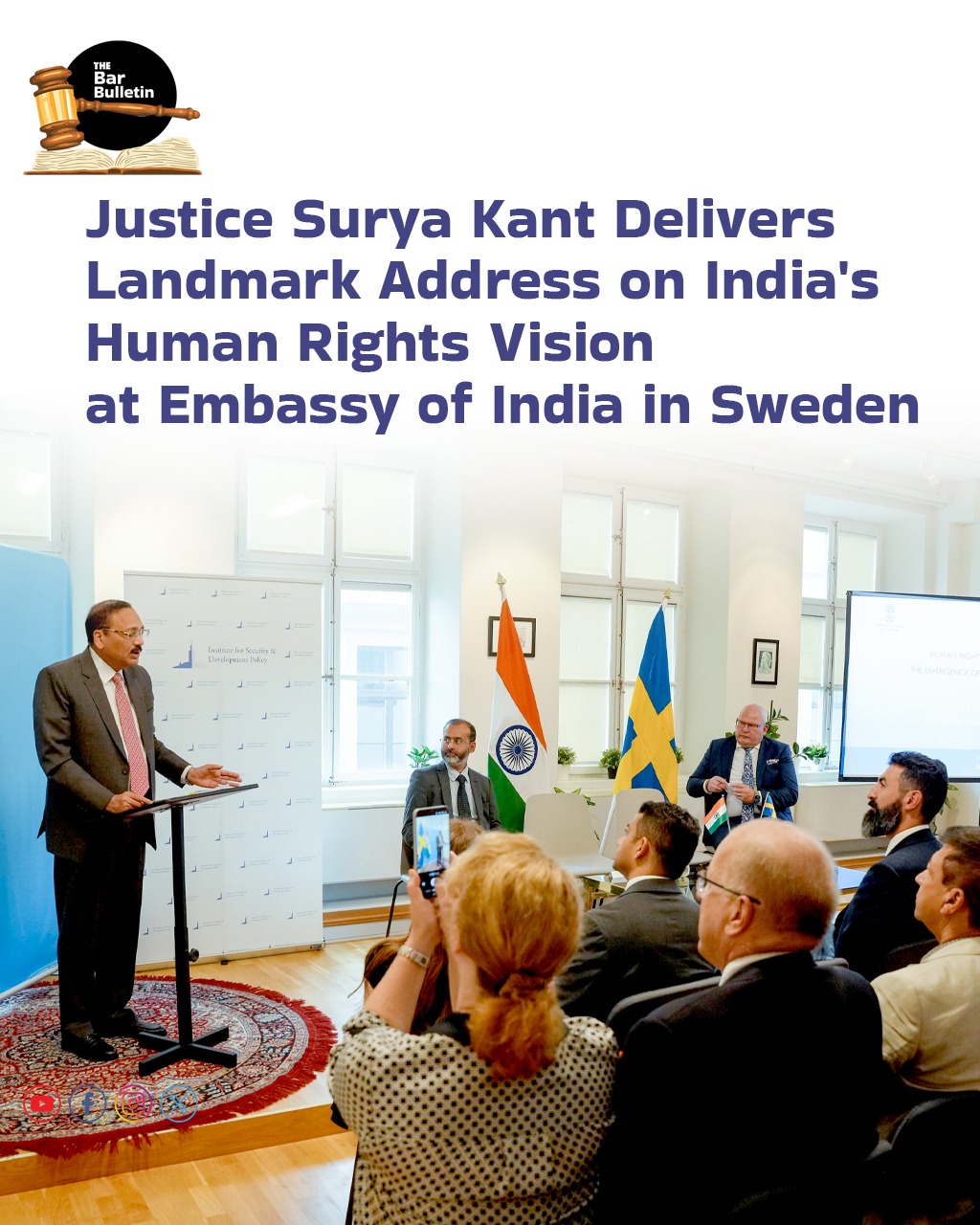On July 7, 2025, Hon’ble Mr. Justice Surya Kant, Judge of the Supreme Court of India, delivered a deeply reflective and scholarly address titled “Human Rights, the Indian Constitution, and India as a Resilient Power” at the Embassy of India, Kornhammstorg, Stockholm (Sweden). His keynote speech was delivered before a distinguished audience of international jurists, academics, diplomats, and human rights advocates.
Opening his remarks with a cultural reflection on Sweden’s tradition of Fika and India’s own coffee heritage, Justice Surya Kant drew a parallel between how cultural experiences and human rights frameworks—while universal in spirit—are shaped by unique local histories, legal traditions, and socio-political realities.
In tracing the evolution of human rights in India, Justice Kant began by highlighting the ancient Indian philosophical and legal traditions, particularly the Vedic principle of Dharma, which encapsulated duties, rights, and moral obligations. Referencing the Rig Veda, Arthashastra, and various civilisational texts, he emphasized India’s longstanding commitment to equality, dignity, and justice—even before the modern conception of human rights.
He then explored the colonial era, describing it as one of the darkest chapters in India’s human rights history, marked by systemic exploitation and repression. Justice Kant underlined how the freedom struggle was fundamentally a human rights movement, culminating in the drafting of a progressive and transformative Constitution.
Justice Kant devoted a significant portion of his address to the constitutional framework of fundamental rights in India, underscoring the pivotal role of the Indian judiciary in expanding the scope of rights through landmark judgments. From Maneka Gandhi to Justice K.S. Puttaswamy, from Unni Krishnan to Common Cause, he noted how the Supreme Court of India has dynamically interpreted Article 21 to include the right to dignity, privacy, education, livelihood, and even a dignified death.
He also discussed Public Interest Litigation (PIL), judicial review under Article 13, and the enforcement powers under Article 32, asserting that the judiciary has served as the principal bulwark against the infringement of rights.
Moving to institutional mechanisms, Justice Kant emphasized the importance of the Protection of Human Rights Act, 1993, which led to the creation of National and State Human Rights Commissions. These bodies, he noted, serve not just as grievance redressal forums but also as instruments of systemic reform and accountability, backed by India’s commitments to international conventions such as the ICCPR and ICESCR.
Justice Kant also addressed contemporary global criticism, cautioning against selective narratives by countries with restrictive immigration policies and opaque human rights records. He reaffirmed that India’s human rights vision is not a product of external pressure but of its own civilisational ethos and constitutional morality.
Concluding his address, Justice Surya Kant called for mutual respect and recognition of diverse legal traditions in the global human rights discourse. Citing former UNGA President Smt. Vijayalakshmi Pandit, he expressed confidence that India, drawing from its ancient wisdom and modern governance frameworks, would continue to pursue a human rights regime rooted in justice, compassion, and dignity.



